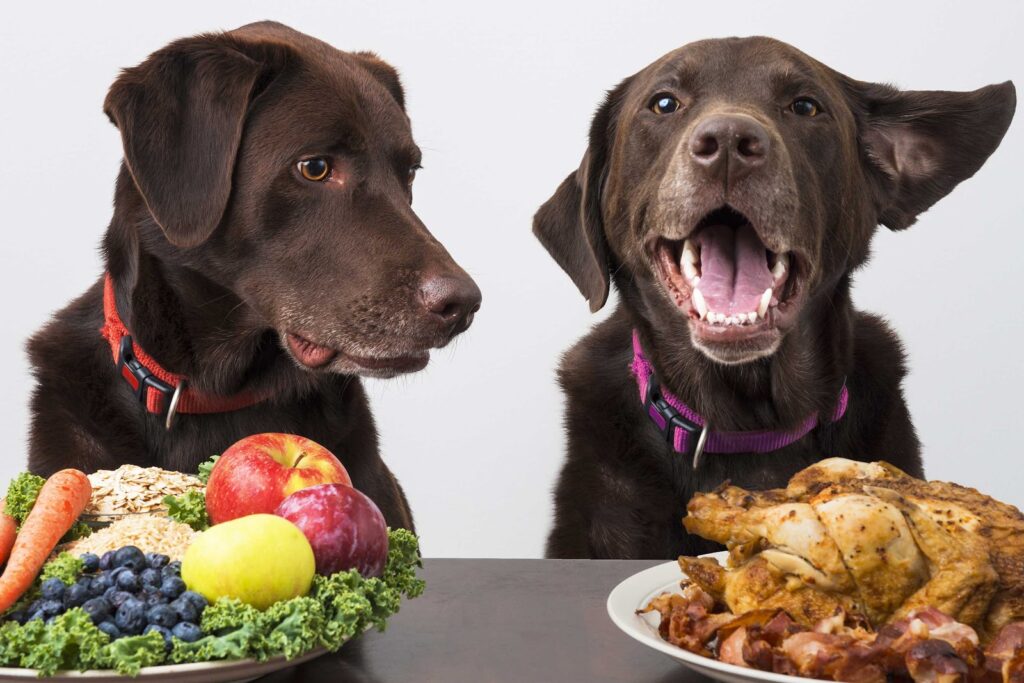What You Should Not Feed Your Dog
Good nutrition for dogs should include a balance of proteins, carbohydrates, vitamins, minerals, and fat. A good balance should provide the body with the necessary vitamins to maintain normal function throughout the year. The food that is fed to dogs is called the diet; it should be designed to meet the nutritional needs of your dog throughout his life stages. This article discusses the nutrition for dogs as they progress through their life stages. This information can be extremely valuable to dog owners.
Puppies require a different type of diet than older dogs. An older dog’s body has entered into its post-rejuvenation stage. During this stage, there are fewer vitamins and minerals in his diet due to his lack of growing years. Proper nutrition for puppies is more important now, than it has been in the past.

Vitamins and Minerals. This refers to the quality and quantity of the vitamins and minerals that are found in the foods that we eat. Vitamins are used by the body to help maintain the correct levels of the minerals that are deficient in our daily diets. One of the major dietary sources of these vitamins is a vitamin supplement. An individual may not suffer from any deficiency in any of the essential vitamins, but his body may still suffer deficiencies if he receives an excessive amount of minerals.
Carbohydrates. This refers to the main source of energy for the body. Different carbohydrates can provide different benefits depending on their type and amount consumed. Some carbohydrates are better sources of energy than others. For example, rice and pasta are better sources of energy than table sugar because they are complex carbohydrates that provide longer periods of time before they become depleted. Some animal foods such as meat and eggs are also rich in carbohydrates, although these diets often do not contain adequate amounts of vitamins or minerals to make them adequate for a daily diet.
Amino Acids. Amino acids are the building blocks of proteins. Like vitamins, they are needed by the body to maintain healthy cell functions and processes. Dogs have the ability to produce a number of essential amino acids, which are broken down into many strains and types. The right diet will provide enough amino acids to meet the daily needs of the dog.
Folic Acid. Like many people, the recommended daily allowance (DA) of folic acid is five hundred and twenty milligrams. However, this amount is more likely to be too low for most dogs, as they are not capable of producing their own folic acid on their own. Therefore, it is important to supplement with supplements from a trustworthy food source, such as puppy pellets, tablets, or beef kidney pellets.
Vitamin D. As dogs age, their dietary requirements begin to change, as they become less active and exercise less. However, even with decreased activity, they require a sufficient amount of vitamin D to help maintain healthy bones, teeth, skin, and immune system functionality. Vitamin D is most readily obtained through fatty fish, eggs, and fortified milk products. While over-supplementation of vitamin D is unlikely to cause vitamin D toxicity, it could lead to anemia in older dogs, which could eventually lead to joint problems.
There are other vitamins and minerals that our dog needs, but for now, these are the top of the food dietary requirements they need for nourishment.
Good nutrition for dogs should include a balance of proteins, carbohydrates, vitamins, minerals, and fat. A good balance should provide the body with the necessary vitamins to maintain normal function throughout the year. The food that is fed to dogs is called the diet; it should be designed to meet the nutritional needs of your dog throughout his life stages. This article discusses the nutrition for dogs as they progress through their life stages. This information can be extremely valuable to dog owners.
Puppies require a different type of diet than older dogs. An older dog’s body has entered into its post-rejuvenation stage. During this stage, there are fewer vitamins and minerals in his diet due to his lack of growing years. Proper nutrition for puppies is more important now, than it has been in the past.
An individual needs to eat foods that provide enough calories, fats, proteins, carbohydrates, and vitamins to support his activity level, growth, and health. This is the basic food pyramid. However, because of growing older and being weaned off of milk products at four months of age, some nutritionists recommend a vegetarian diet. In this article, we will discuss the best ways to provide the proper nutrition for this age group.
Vitamins and Minerals. This refers to the quality and quantity of the vitamins and minerals that are found in the foods that we eat. Vitamins are used by the body to help maintain the correct levels of the minerals that are deficient in our daily diets. One of the major dietary sources of these vitamins is a vitamin supplement. An individual may not suffer from any deficiency in any of the essential vitamins, but his body may still suffer deficiencies if he receives an excessive amount of minerals.
Carbohydrates. This refers to the main source of energy for the body. Different carbohydrates can provide different benefits depending on their type and amount consumed. Some carbohydrates are better sources of energy than others. For example, rice and pasta are better sources of energy than table sugar because they are complex carbohydrates that provide longer periods of time before they become depleted. Some animal foods such as meat and eggs are also rich in carbohydrates, although these diets often do not contain adequate amounts of vitamins or minerals to make them adequate for a daily diet.
Amino Acids. Amino acids are the building blocks of proteins. Like vitamins, they are needed by the body to maintain healthy cell functions and processes. Dogs have the ability to produce a number of essential amino acids, which are broken down into many strains and types. The right diet will provide enough amino acids to meet the daily needs of the dog.
Folic Acid. Like many people, the recommended daily allowance (DA) of folic acid is five hundred and twenty milligrams. However, this amount is more likely to be too low for most dogs, as they are not capable of producing their own folic acid on their own. Therefore, it is important to supplement with supplements from a trustworthy food source, such as puppy pellets, tablets, or beef kidney pellets.
Vitamin D. As dogs age, their dietary requirements begin to change, as they become less active and exercise less. However, even with decreased activity, they require a sufficient amount of vitamin D to help maintain healthy bones, teeth, skin, and immune system functionality. Vitamin D is most readily obtained through fatty fish, eggs, and fortified milk products. While over-supplementation of vitamin D is unlikely to cause vitamin D toxicity, it could lead to anemia in older dogs, which could eventually lead to joint problems.
There are other vitamins and minerals that our dog needs, but for now, these are the top of the food dietary requirements they need for nourishment.







